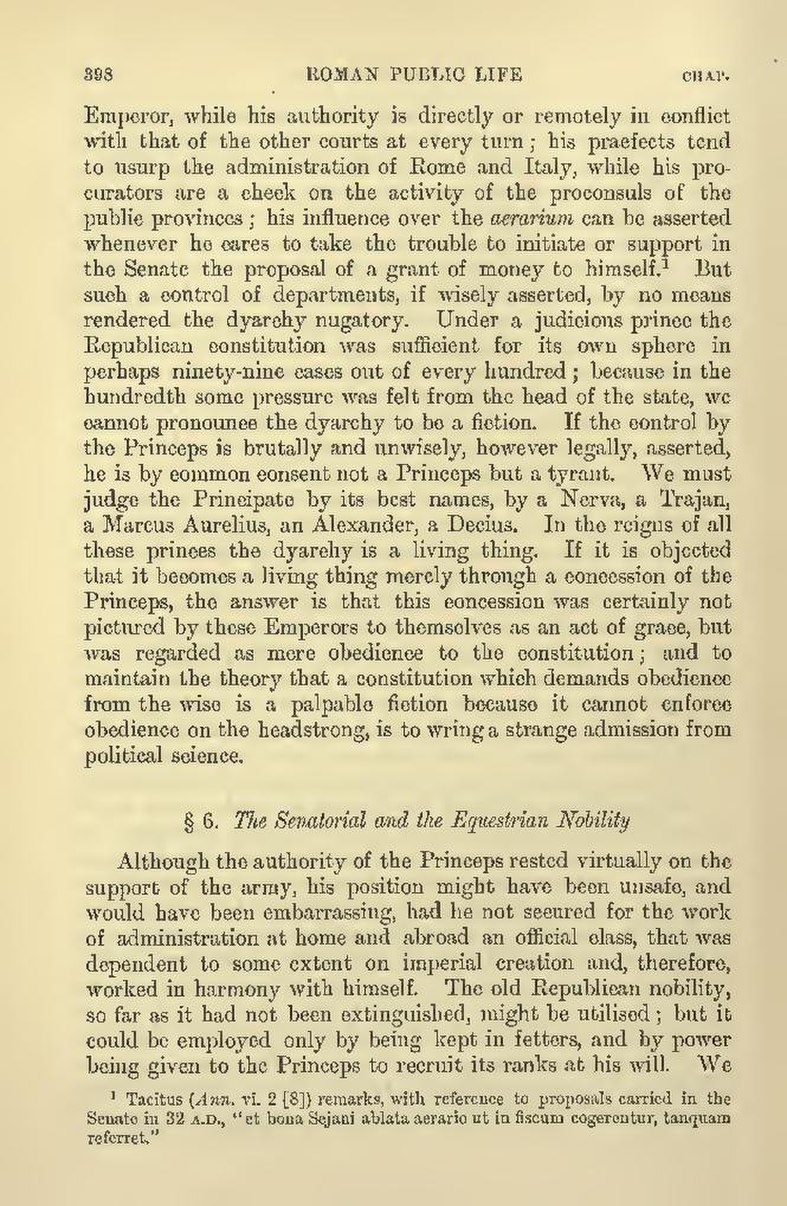Emperor, while his authority is directly or remotely in conflict with that of the other courts at every turn; his praefects tend to usurp the administration of Rome and Italy, while his procurators are a check on the activity of the proconsuls of the public provinces; his influence over the aerarium can be asserted whenever he cares to take the trouble to initiate or support in the Senate the proposal of a grant of money to himself.[1] But such a control of departments, if wisely asserted, by no means rendered the dyarchy nugatory. Under a judicious prince the Republican constitution was sufficient for its own sphere in perhaps ninety-nine cases out of every hundred; because in the hundredth some pressure was felt from the head of the state, we cannot pronounce the dyarchy to be a fiction. If the control by the Princeps is brutally and unwisely, however legally, asserted, he is by common consent not a Princeps but a tyrant. We must judge the Principate by its best names, by a Nerva, a Trajan, a Marcus Aurelius, an Alexander, a Decius. In the reigns of all these princes the dyarchy is a living thing. If it is objected that it becomes a living thing merely through a concession of the Princeps, the answer is that this concession was certainly not pictured by these Emperors to themselves as an act of grace, but was regarded as mere obedience to the constitution; and to maintain the theory that a constitution which demands obedience from the wise is a palpable fiction because it cannot enforce obedience on the headstrong, is to wring a strange admission from political science. § 6. The Senatorial and the Equestrian Nobility
Although the authority of the Princeps rested virtually on the support of the army, his position might have been unsafe, and would have been embarrassing, had he not secured for the work of administration at home and abroad an official class, that was dependent to some extent on imperial creation and, therefore, worked in harmony with himself. The old Republican nobility, so far as it had not been extinguished, might be utilised; but it could be employed only by being kept in fetters, and by power being given to the Princeps to recruit its ranks at his will. We) remarks, with reference to proposals carried in the Senate in 32 A.D., "et bona Sejani ablata aerario ut in fiscum cogerentur, tanquam referret."]
- ↑ Tacitus (Ann. vi. 2 [8
